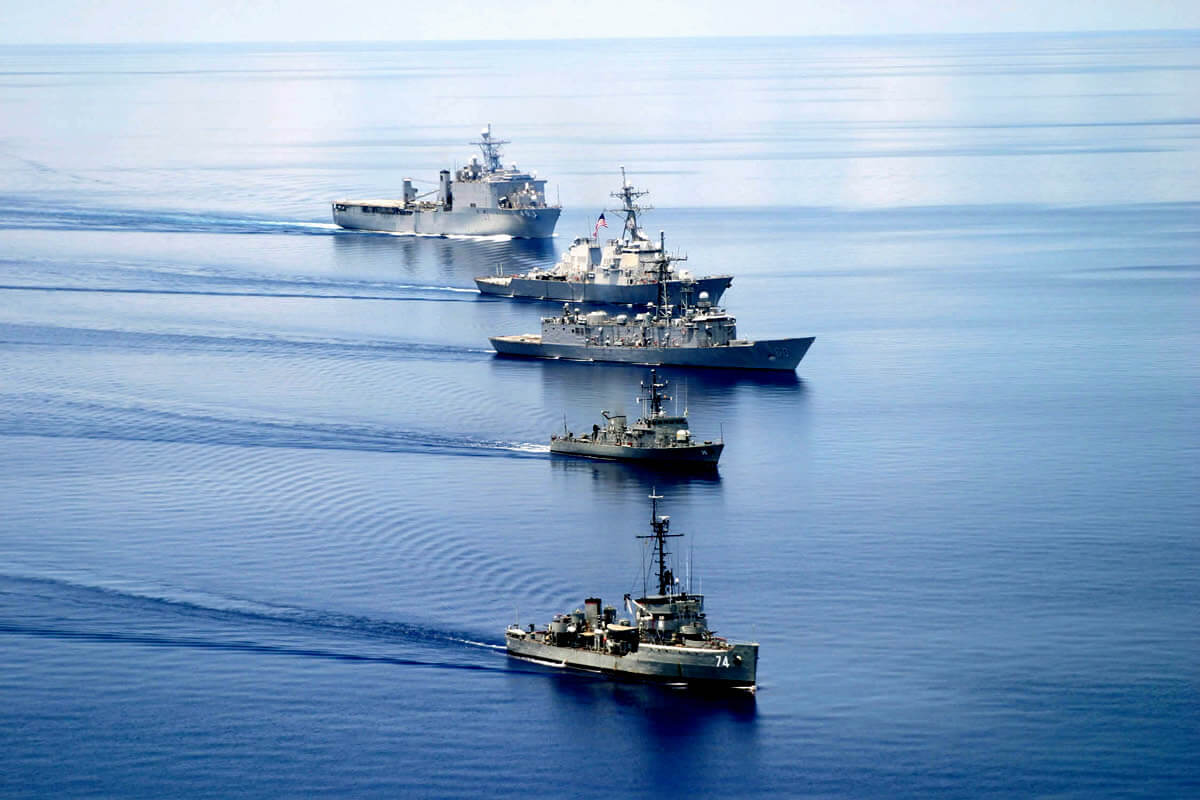During a virtual news conference on Tuesday, the Philippines’ new military commander, General Cirilito Sobejana, said that the country would be increasing its naval presence in the South China Sea in response to China passing a controversial law that its coastguard the power to attack foreign vessels and demolish structures built in disputed waters.
“[T]he pronouncement of China that their coast guard can open fire on people intruding into their territory is very alarming… Our compatriots do not go to that disputed area to make war, but for livelihood. So, what we will do as part of our mandate to secure the people is to increase our visibility through the deployment of more naval assets,” said Sobejana, who assumed his position as commander of the Armed Forces of the Philippines (AFP) last week.
On January 22, China’s top legislative body, the National People’s Congress standing committee, passed the controversial Coast Guard Law. According to a draft of the bill published earlier, the law grants permission to the Chinese coast guard to use “all necessary means” to respond to threats from foreign vessels. The bill, which entered into law on February 1, also specifies situations in which different weapons can be used. Moreover, the law also gives the coast guard personnel the power to “demolish structures” built by other countries’ on reefs claimed by Beijing and to “board and inspect foreign vessels” in waters claimed by China. Chinese foreign ministry spokesperson Hua Chunying defended the bill saying that the law was “in line with international practices” and was nothing but “normal domestic legislative activity”.
Following the passage of the bill, on January 27, the Philippines’ foreign secretary, Teodoro Locsin Jr., announced that Manila had filed an official protest with Beijing against the new law. The minister also added that the legislation was “a verbal threat of war to any country that defies the law; which, if unchallenged, is submission to it.”
Moreover, in further pursuance of its national security, the Philippines will be meeting with the United States (US) delegation at the end of this month to discuss the future of their Visiting Forces Agreement (VFA). The VFA is a crucial military pact that provides a framework for the legal status of thousands of US troops in the Philippines, for military exercises and humanitarian assistance. President Rodrigo Duterte had earlier decided to terminate the twenty-year-old agreement but later suspended the decision in November.
Furthermore, speaking about the Philippines’ meeting with the US, Locsin Jr. told the ABS-CBN News Channel “I’m narrowing down the issues, and soon we will meet, I believe in the last week of February, and iron out whatever differences we have and come to an agreement.” As China escalates tensions in the region, the Philippines is expected to fully rekindle currently strained ties with the US in the upcoming meeting.
Philippines Increases Deployment in South China Sea Following China’s New Coastguard Law
Following China’s passing of a new law that empowers its coastguard to take military action, the Philippines ordered an increase in naval vessels deployed in the contentious South China Sea.
February 10, 2021

SOURCE: DIPLOMATIC COURIER
